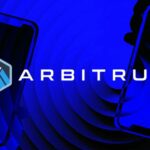Disclosure: The views and opinions expressed here belong solely to the author and do not represent the views and opinions of crypto.news’ editorial.
If data is considered to be “the new oil,” then there is untapped value sitting within all of us. In the realm of web2, personal data is often stored in isolated platforms and under the ownership of corporate giants. Unfortunately, this data is frequently exploited by being sold to undisclosed entities for personal gains.
In the evolving landscape of web3, users are pushing back against the misuse and abuse of their data. This has led to a movement where individuals are reclaiming control by linking their gaming, social media, and other accounts to the blockchain. Empowered by on-chain records, users are addressing the fundamental data problem entrenched in web2.
Traditionally, the adage “if the product is free, then you are the product” has held true, especially in the tech industry operating within web2. Giant corporations view users as both customers and valuable resources. Companies like Facebook and Google have built massive advertising empires by leveraging user data, often leading to privacy breaches and data leaks.
However, users are increasingly dissatisfied with this model as data breaches and privacy violations continue to occur. Recent surveys indicate that consumers are more concerned about their data privacy than ever before. As digital technologies become more integral to daily life, users are acutely aware of the data imbalance and are seeking solutions.
The emergence of blockchain technology has sparked hope for change by promoting digital asset ownership among internet users. Novel protocols and innovative startups are now spearheading a shift towards data ownership. By leveraging on-chain recording of off-chain information, web3 offers users the opportunity to regain power and profit from their data, mirroring the practices of tech giants.
In a significant development, Ethereum recently finalized the ERC-7231 protocol proposal, which integrates digital identities with an aggregated NFT. This standard enables users to link multiple identities from web2 and web3 to a single NFT, allowing for encrypted aggregation of multi-domain identity data.
One clear application of this advancement is within the gaming industry. ERC-7231 bridges the gap between traditional gaming structures and blockchain technology, offering gamers the ability to unify their identities and data in one place. Gamers can now move seamlessly across platforms while retaining ownership of their data, enabling them to earn passively from brands that leverage their information.
Startups like Clique are actively working towards actualizing the concept of data self-sovereignty. Clique’s decentralized identity-oracle protocol empowers users to attest their off-chain data on-chain, enabling them to monetize their information securely and privately. By ensuring tamper-proof data via trusted execution environments and multi-party computation, privacy and value generation are guaranteed.
The current shift in paradigm highlights the growing recognition among users that their data holds significant value. Surveys reveal that a sizable portion of internet users feel that they should own and profit from the content they create online. Moreover, concerns regarding data privacy are paramount, with a majority of users desiring greater control over their online identities and data.
Web3 presents an opportunity to redefine the dynamics of data ownership and accessibility. Rooted in the transparency and immutability of blockchain technology, web3 offers a pathway towards fairer data practices and a more equitable digital landscape.
Paul Delio, the head of business development at CARV, a platform bridging web2 and web3 gaming activities, is at the forefront of this transformation. With a background in critical roles at Real Madrid and Pocketful of Quarters, Paul is instrumental in driving the integration of game projects with CARV Play and fostering relationships across various ecosystems in the web3 space.









